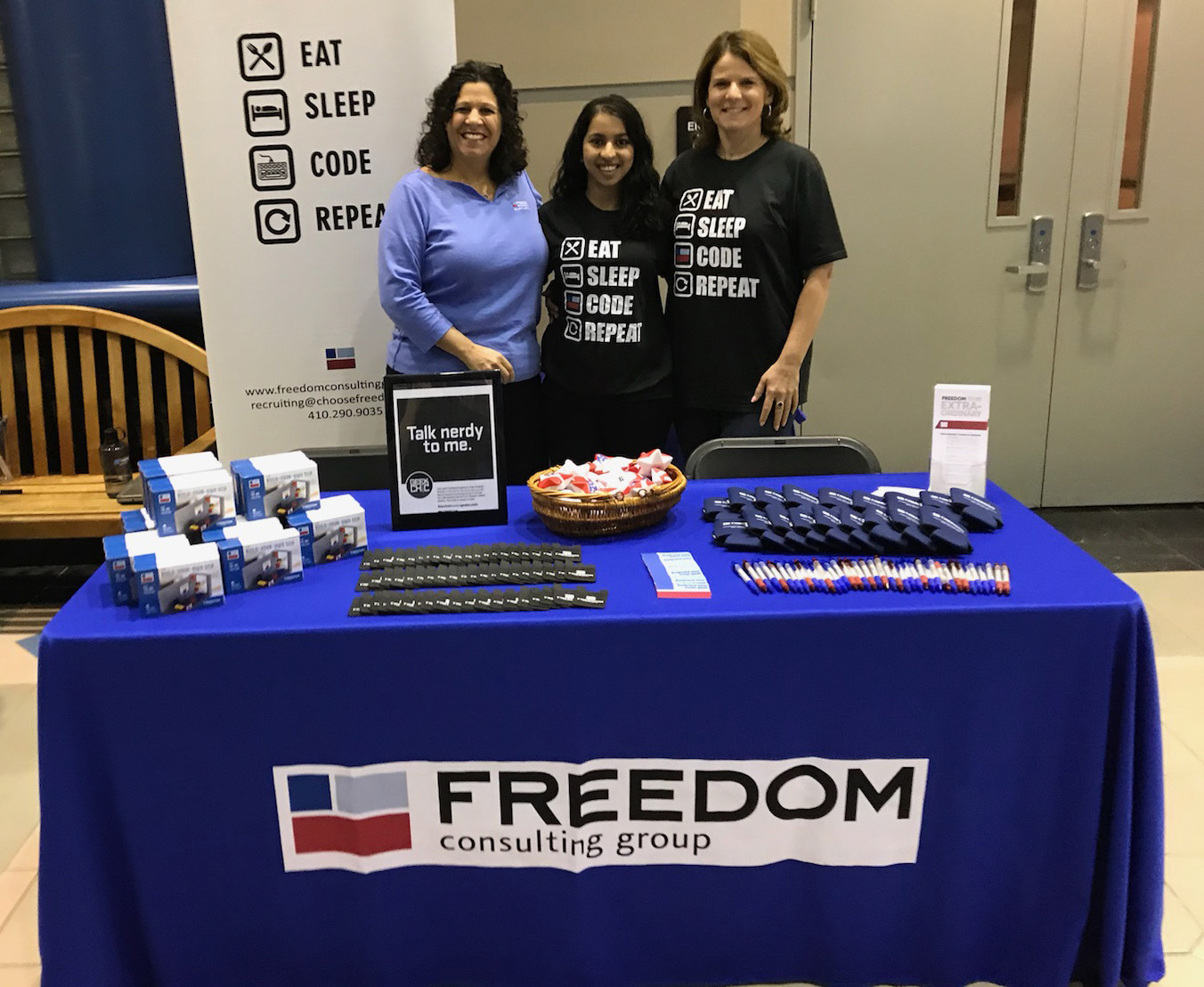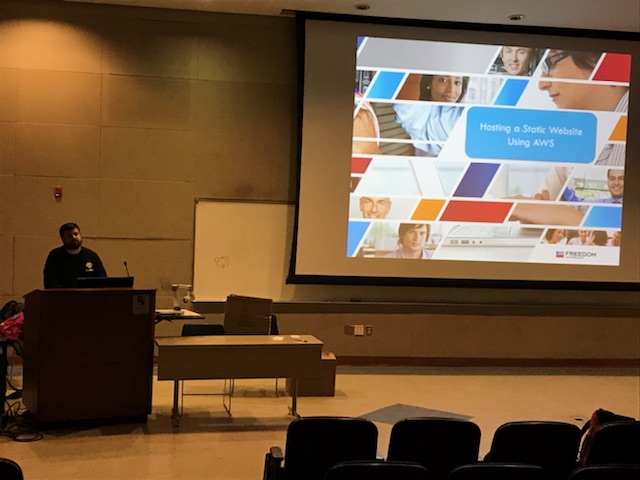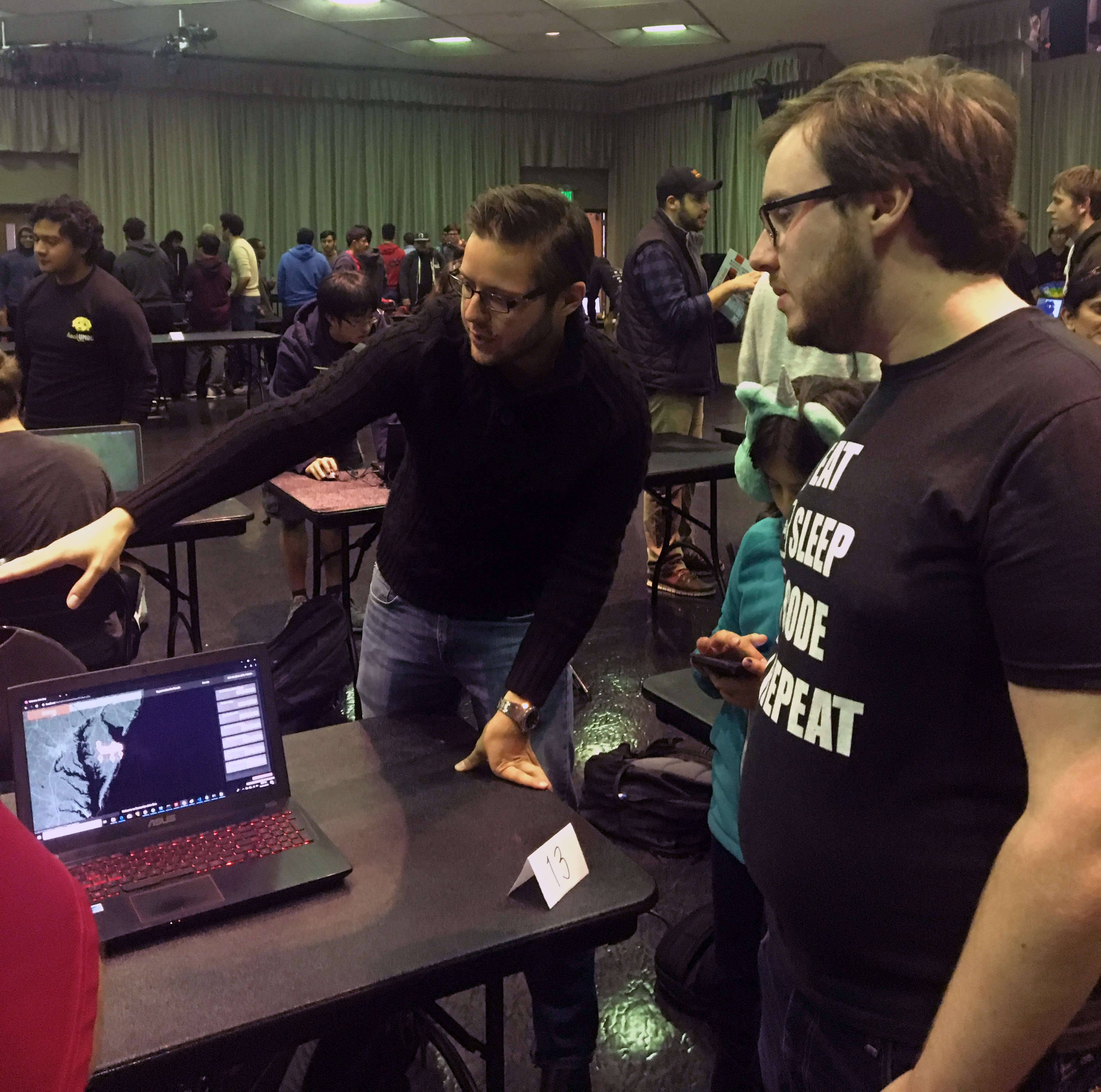HackUMBC, FCG Style

Last weekend, the FCG Team headed over to visit the HackUMBC Fall Hackathon, which showcases the hard work of some of our local up-and-coming coders (writing a program in 24 hours!). Since FCG is one of the event sponsors, we had a chance to spend some quality time with students from all around the area who were participating in the hack and have some words of wisdom from a few of the team members.
We asked Alex M. and Brian B. to give us some insight into FCG’s participation in the event and their thoughts on the hackathon and they were excited to help! Here’s what they said about it:
Brian: In short, this year was another successful year. There were many more entries and it was much more organized than the spring.
Alex: This semester, I operated as a judge for the final projects.
What was your favorite thing about the Hackathon?
Alex: Having the opportunity to talk with the students during the judging of their final projects and asking them questions about their design process is awesome. It’s a really cool feeling to know that the up-and-comers in the tech industry are putting serious thought into the things that they design; for the most part, the kids seemed really passionate about the types of benefits that their project could provide (if seen to completion).
Brian: The projects and the enthusiasm of the students. They were very passionate about explaining the reason for their project and each had a practical real-world implication.

What category did FCG judge? What advice would you give to students about participating from a judge’s perspective?
Brian: Our category was “Most Innovative and Creative Community project.” The most important advice I’d give to students is to relate their project to a real-world problem they have experienced and go from there.
Alex: We judged our winner in terms of completeness of project (i.e., how close is it to being able to deploy out to the world?) and how clean the presentation/how intuitive the display is. In more than a few cases of the projects that we looked at, the kids had very big, pie-in-the-sky ideas for what they wanted their projects to do. Those projects were a mixed bag of results – in a lot of cases, the final product felt very incomplete relative to what they would want the project to be able to do “in the future”.
I think that recognizing the very limited timeframe with which you have to work on a project for the hackathon should play a big part in the design of your project. Limiting the scope of the project, but spending time on polishing the final product, goes a long way in helping with the overall presentation of the piece.
What was one of the most creative things you saw from the participants?
Alex: One project (that we weren’t asked to judge, unfortunately!) took several famous songs and played them on an ATARI 400. Never in a million years would I have expected college-age kids to take the time to work on such old architecture for a programming competition! It felt very novel relative to the much more modern smartphone apps and websites of the other projects on display.
Brian (in reference to the ATARI project): Very creative and interesting.
What is some general advice you would give to anyone looking to attend/participate in a hackathon?

Brian: Be passionate about your project and be able to talk about it repeatedly and answer any questions.
Alex: I think that a hackathon is a wonderful opportunity to learn how to develop a product in a group setting (which college students may not have much experience with vice an internship), so it’s a good idea to take advantage of that fact. I like the idea of working with a sort of “dual” mentality – try to take advantage of something you’re familiar with (a programming language, a templating tool, whatever) so that you aren’t dead weight to your team but try to also find something else within the project that you’re not as familiar with. For example, if you’re a back-end/server type of guy, do most of the project’s work for the server but ask to try writing one of the webpages’ HTML so the experience can be more educational for you.
How are events like this helpful to FCG and our industry?
Alex: Having the chance to get face-to-face time with college students is invaluable for recruiting – it’s so much easier for a company to leave a positive impression on you when they talk to you like a regular person instead of someone attempting to get hired for a job during an interview. For the industry as a whole, the sponsorships of various companies for the hackathons are awesome because it helps college students feel like what they’re working on could hold real value in the real world of development; it helps students get out of their collegiate/academic bubble, in other words.
Brian: Events like this give FCG employees a refreshing take on the younger generation and how creative of thinkers they are.
Have you ever been a part of a competing team in a hackathon in the past? What did your team create?
Alex: Nope – I spent my time focusing on other extracurriculars but I see now how valuable a hackathon could be!
Brian: I have not but the students had great projects and I can’t wait to see what they come up with in the spring!
Thanks Alex and Brian for giving us the inside scoop!